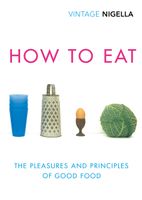Advertisement
Basics Etc.
Appears in
Published 1998

The Great Culinary Renaissance we hear so much about has done many things – given us extra virgin olive oil, better restaurants and gastroporn – but it hasn’t taught us how to cook.
Of course standards have improved. Better ingredients are available to us now, and more people know about them. Food and cookery have become more than respectable: they are fashionable. But the renaissance of British cookery, as it was relentlessly tagged in the late 1980s, started in the restaurant and filtered its way into the home. This is the wrong way round. Cooking is best learned at your own stove: you learn by watching and by doing. Chefs themselves know this. The great chefs of France and Italy learn about food at home: what they do later, in the restaurants that make them famous, is use what they have learnt. They build on it, they start elaborating. They take home cooking to the restaurant, not the restaurant school of cookery to the home. Inverting the process is like learning a vocabulary without any grammar. The analogy is pertinent. In years as a restaurant critic, I couldn’t help noticing that however fine the menu, some chefs, for all that they seem to have mastered the idiom, have no authentic language of their own. We are at risk, here, of becoming a land of culinary mimics. There are some things you just cannot learn from a professional chef. I am not talking of home economics – the rules that govern what food does when you apply heat or introduce air or whatever – but of home cooking, and of how experience builds organically. For there is more to cooking than being able to put on a good show. Of course there are advantages in an increased awareness of and enthusiasm for food, but the danger is that it excites an appetite for new recipes, new ingredients: follow a recipe once and then – on to the next. Cooking isn’t like that. The point about real-life cooking is that your proficiency grows exponentially. You cook something once, then again, and again. Each time you add something different (leftovers from the fridge, whatever might be in the kitchen or in season) and what you end up with differs also.

